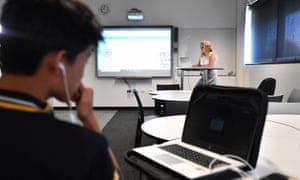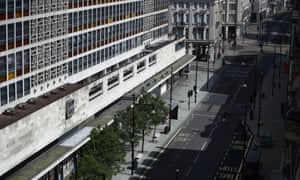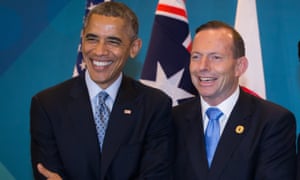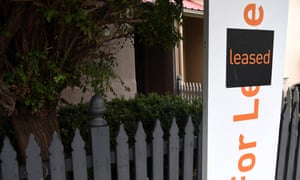Victorian independent schools say federal funding offer leaves them in ‘unfair’ position
Contemporary politics,local and international current affairs, science, music and extracts from the Queensland Newspaper "THE WORKER" documenting the proud history of the Labour Movement. MAHATMA GANDHI ~ Truth never damages a cause that is just.
Thursday, 30 April 2020
Coalition offers independent schools early funding if they return to face-to-face teaching
Independent Schools Victoria has blasted an offer from the education
minister, Dan Tehan to bring forward independent and Catholic schools’
federal funding if they meet benchmarks to return to face-to-face
teaching, accusing him of wedging schools in a dispute with the Victorian government.
After warning independent schools with the stick of withdrawing their funding if they didn’t open their doors, Tehan is now trying the carrot approach by offering them up to 25% of their total annual recurrent funding early, in late May and early June.
In a letter to the Independent Schools Council of Australia and the National Catholic Education Commission, sent on Tuesday, Tehan offered to financially assist schools “in their response to Covid-19 and also [to] encourage the re-engagement of students within a classroom based learning environment”.
To be eligible for the first payment of 12.5% of recurrent funding,
non-government school authorities must meet a condition Tehan imposed on
9 April to open campuses for term two and have a plan to fully reopen
classroom teaching by 1 June.After warning independent schools with the stick of withdrawing their funding if they didn’t open their doors, Tehan is now trying the carrot approach by offering them up to 25% of their total annual recurrent funding early, in late May and early June.
In a letter to the Independent Schools Council of Australia and the National Catholic Education Commission, sent on Tuesday, Tehan offered to financially assist schools “in their response to Covid-19 and also [to] encourage the re-engagement of students within a classroom based learning environment”.
To be eligible for the second payment of 12.5%, the school authority will need to commit to achieving 50% of their students attending classroom-based learning by 1 June.
Non-government schools have complained that falling enrolments and the fact federal funding is based on a census date of students in August means they are set to lose both fee income and government funding.
On Wednesday, the Independent Schools Council of Australia welcomed the offer, which its chief executive, David Mulford, said was “not a handout” but “simply a matter of adjusting the timing of one of the regular scheduled payments” to help improve cash flow issues.
Mulford said independent schools “remain supportive of the government’s intention to reopen schools in a timely manner”.
But Independent Schools Victoria chief executive, Michelle Green, said the offer put schools in an “extraordinarily difficult and unfair position” because they had “just two days to decide if they are able to provide a safe workplace for their teachers and a safe learning environment for their students”.
“Independent schools are being used as a wedge in a policy disagreement between the federal and Victorian governments,” she said. “This is unfair and entirely inappropriate when what’s at stake is the health of children and their teachers.”
Tehan has been publicly lobbying for all schools to return to face-to-face teaching in term two, resisted by teachers’ unions, which want more physical distancing measures in school, and Victoria, which cites its own medical advice in favour of remote learning.
Since the national cabinet recognised states’ autonomy rather than a nationally consistent approach, parents have continued to be confused by a patchwork of different approaches on school closures and remote learning.
New South Wales
is set to return to face-to-face teaching in week three of term two,
from 11 May. Queensland will deliver education remotely until 22 May,
with a re-evaluation to take place by 15 May.
But even that direction acknowledged that schools must follow “the advice of the health or education authorities of the commonwealth or the state or territory in which the school is located”, leading to confusion particularly in Victoria.
On Friday Scott Morrison reiterated that schools do not need to impose physical distancing rules in classrooms – such as maintaining 1.5 metres between students and four square metres of personal space.
The Australian Health Protection Principal Committee advised it believes the “venue density” rules are not “appropriate or practical in classrooms or corridors”. It did advise that schools should impose room density measures in staff rooms “given the greater risk of transmission between adults”.
The AHPPC has noted there is “very limited evidence of transmission between children in the school environment” and just 2.4% of confirmed cases have been in children aged between five and 18 years of age.
Apocalyptic vision: the unsettling beauty of lockdown is pure sci-fi
The streets lie silent, the skies are clear, as office buildings
reflect our empty cities. Coronavirus has brought with it the same eerie
scenes that have long haunted the modern imagination
The
end of everything we took for normal has a dire aesthetic fascination.
The streets lie silent and still under unnaturally clean skies. A lone
walker stares into a deserted bookshop. Office buildings, once vulgar,
fulfil their true potential as sets for a sci-fi nightmare, glassily
reflecting the empty city. While I do not want to in any way downplay
the tragedy that has left thousands dead and will kill thousands more,
there has been one eerie byproduct: the apocalyptic beauty of lockdown
Britain.
Take a walk through quiet streets for your daily exercise and you come across vistas sci-fi has spent more than a century preparing us for. A main road so still you can stand in the middle of it, among the squatting pigeons. A row of expensive shops all closed and dark midweek. Such scenes of The End have haunted the modern imagination since HG Wells described the abandoned streets of the imperial metropolis and devastated Surrey in The War of the Worlds. We’ve all absorbed these visions of apocalyptic Britain, generation after generation, from the 1970s TV chiller Survivors to Danny Boyle’s uncannily convincing dawn photography of an emptied landscape in the film 28 Days Later. Surely we can be forgiven a frisson of macabre awe at seeing all these fantasies become real.
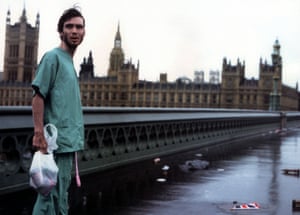
Take a walk through quiet streets for your daily exercise and you come across vistas sci-fi has spent more than a century preparing us for. A main road so still you can stand in the middle of it, among the squatting pigeons. A row of expensive shops all closed and dark midweek. Such scenes of The End have haunted the modern imagination since HG Wells described the abandoned streets of the imperial metropolis and devastated Surrey in The War of the Worlds. We’ve all absorbed these visions of apocalyptic Britain, generation after generation, from the 1970s TV chiller Survivors to Danny Boyle’s uncannily convincing dawn photography of an emptied landscape in the film 28 Days Later. Surely we can be forgiven a frisson of macabre awe at seeing all these fantasies become real.

It
might be healthier to embrace the nightmare than pretend we’re in a
cosy new normal. I’m not too sure about “lockdown culture”. It’s all so positive and mutually supportive.
Let’s bake, exercise and singalong. But imagination is black-hearted
and feeds on shadows. Positivity is the opposite of sensitivity. The
18th-century aesthetician Edmund Burke looked honestly into his own soul
and confessed that, for all the seductions of pretty things, he was
more truly drawn to disturbing sights – a pitch-black night, a cliff
face, a storm at sea. Burke called their aesthetic appeal “sublime”.
Tell an audience gathered to watch a play that a public hanging is about
to happen down the road, he says, and the theatre will empty.
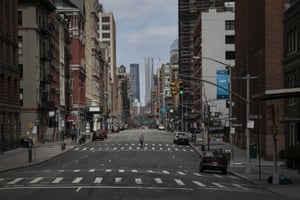
“When
a day that you happen to know is Wednesday starts off by sounding like
Sunday,” wrote John Wyndham in The Day of the Triffids, “there is
something seriously wrong somewhere.” For weeks now, every Wednesday has
sounded like a Sunday – and so have all the other days. When life
outdoes art, we should allow ourselves to embrace the spectacle.
The latest news images reveal a further surrealism: the lockdown in decay. More and bigger queues, as DIY superstores reopen. It’s rumoured garden centres will be next. As Ballard would say, the middle class must have its illusions even in the apocalypse. In truth, looking at images of gathering crowds, I feel a pang of loss. At least the early days of the lockdown were absolute. At least they were sublime.
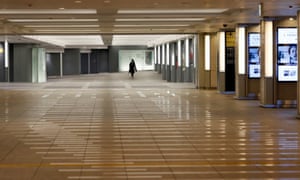
You can still find the sudden silence in the heart of the city. There are moments when no other walkers are about, no cars come by, and empty workplaces tower above in brutalist disregard. It’s worth seeking out such ground zeros of total lockdown. In the centre of the city in the day, you can appreciate the terrible beauty of the day the earth stood still. At least it will be something to remember in the sad convalescent years ahead.
How humans have reacted to pandemics through history – a visual guide
Extract from The Guardian
From arguments about masks to riots outside hospitals, history shows some common threads in the human response to pandemics.
https://www.theguardian.com/society/ng-interactive/2020/apr/29/how-humans-have-reacted-to-pandemics-through-history-a-visual-guide
https://www.theguardian.com/society/ng-interactive/2020/apr/29/how-humans-have-reacted-to-pandemics-through-history-a-visual-guide
Obama White House watched Julia Gillard's misogyny speech when annoyed at Tony Abbott
Former Obama adviser says Australian PM was ‘very sure of himself without knowing what he was talking about’
Barack Obama’s team watched Julia Gillard’s misogyny speech whenever they were “really annoyed” with Tony Abbott, one of the president’s senior advisers has revealed.
Ben Rhodes, the former deputy national security adviser, has also described how Obama “went way off the script” to blast the Abbott government for climate inaction during a visit to Brisbane for the G20 summit in 2014.
For his part, Rhodes described Abbott as being “tone deaf” on the climate issue in the lead-up to the Paris agreement and recalled the former prime minister as being “upset” about the US president’s forceful intervention on protecting the Great Barrier Reef.
The behind-the-scenes tension between Obama and Abbott is laid bare in the latest episode of A Rational Fear, a news and politics comedy podcast.Ben Rhodes, the former deputy national security adviser, has also described how Obama “went way off the script” to blast the Abbott government for climate inaction during a visit to Brisbane for the G20 summit in 2014.
For his part, Rhodes described Abbott as being “tone deaf” on the climate issue in the lead-up to the Paris agreement and recalled the former prime minister as being “upset” about the US president’s forceful intervention on protecting the Great Barrier Reef.
In an interview, Rhodes said he and others at the White House had regularly watched the 2012 video of Gillard declaring she would “not be lectured about sexism and misogyny” by Abbott.
“That speech got watched a lot in the Obama White House, let me just put it that way,” he added with a smile, but did not specify whether the president was one of the viewers.
Rhodes said while Obama had been able to work positively with centre-right leaders including Germany’s Angela Merkel and Britain’s David Cameron, it was no secret that Abbott was “far from his favourite leader to begin with”.
“What was frustrating with Abbott, you know, is he was kind of very sure of himself without really knowing what he was talking about,” Rhodes told the podcast hosts, Dan Ilic and Lewis Hobba.
Obama had been “trying to get Australia to do some minimal stuff”, such as setting a target to reduce emissions by 2030 or providing funding for developing countries.
At the time, the Guardian reported that Australia was resisting including language in the official G20 communique encouraging countries to make pledges to the Green Climate Fund, instead insisting the focus should be on spurring global economic growth.
Rhodes said Obama’s team had prepared a paragraph about climate change for a speech on the sidelines of the G20 but when the president got to that portion “he just went way off the text, and was just basically blasting the Abbott government in ways that he almost never did on foreign soil and pointing out the Great Barrier Reef disappearing”.
Obama told an audience at the University of Queensland that global heating threatened “the incredible natural glory of the Great Barrier Reef” and Australia, like the US, had to “step up”.
“Abbott was upset,” Rhodes said. “You know, this was supposed to be this big stage for him hosting the G20.
“But it’s like, well, look, if you want to host a G20, you’ve got to step up and be an international leader. And we’ve got everybody else kind of rallying around this effort to get to an ambitious climate agreement the next year in Paris, and Abbott was really one of the last holdouts dragging his feet.”
Abbott used his own speech to the G20 leaders’ retreat to declare that his government had fulfilled its domestic-policy promises to the Australian people, including “that I would repeal the carbon tax, and that’s gone”. The final Brisbane communique included a call for “strong and effective action” on climate change.
Rental affordability snapshot proves Australia's coronavirus welfare payments should stay
Those on the doubled parenting payment can now afford to rent 2.6% of available family homes. This tells you how dire things are
The
latest annual rental affordability snapshot released on Thursday by
Anglicare reveals the continuing precarious nature of housing for those
on low incomes. But while this has been an ongoing issue, this year’s
snapshot highlights the magnitude of the impact the recent temporary
doubling of welfare payments has on the ability for people to find a
place to live.
The coronavirus has brought to the fore a number of issues in the
economy, which makes it easy to forget that many people were struggling
even before the economy hit a wall.Anglicare’s 21st rental affordability snapshot released on Thursday highlights that even prior to the coronavirus wreaking havoc on our economy, it was as hard as ever for those on minimum wage and government payments to find places to rent.
Each year Anglicare surveys properties available to rent on a certain date, and rates them as affordable and suitable for differing households, because importantly, the rental price is not the only consideration.
Obviously a one room apartment might be affordable for a family of four with a parent on the minimal wage, but it is not suitable.
This year, Anglicare’s survey was undertaken on 21 March – just before the introduction of the temporary increase in payments for benefits such as the Jobseeker allowance (formerly Newstart).
This allowed them to compare the difference in affordability before and after the changes.
And it is stark.
On 21 March there were 69,960 places for rent, and just nine of those were suitable and affordable for a person on jobseeker. But if the doubling of the payment was treated as permanent, that increases to 1,040 places:
Those payments that have not been increased due to the coronavirus – the aged pension and the disability support pension, not surprisingly saw the least change. The only increase for these payments came from including a rise as a result of Wednesday’s latest inflation figures.
Anglicare notes that “close to 750,000 people receive the disability support pension” and that “660,000 people on the aged pension do not own their own home.”
They argue that “it defies logic that they have not been included in the coronavirus supplement”.
The impact on the exclusion of the aged pension from the increase is clear when we compare it with affordability for those on the parenting payment:
That this takes the parenting payment affordability to just 2.6% of all rental properties highlights just how poor the situation is.
The latest inflation figures released on Wednesday by the Bureau of Statistics show that average rents have declined in Perth, Sydney and Darwin, and that for the past three years they have, in all cities except Canberra and Hobart, risen by less than inflation:
Anglicare has called for the increases to be permanent – something the prime minister has recently ruled out.
It has also called for a “national economic stimulus package with targets for building social housing”. This echoes a recent call by Geoff Hanmer, adjunct professor of architecture at the University of Adelaide.
Australia’s public construction of residential properties is currently at near record low levels – it barely makes a dent in the total building of houses and apartment:
The coronavirus looks set to change our economy, but we should not forget that beforehand there were many problems – and chief among them was the inability of those on government payments to survive for any length of time.
The Anglicare rental affordability snapshot highlights just how great an impact the increase in the payments makes on the ability of families to find a place to rent. But it also should shine a light on the need for public and social housing – not just to create places for people to live but, in a period where private investment is retreating, to also provide jobs.
• Greg Jericho writes on economics for Guardian Australia
Asteroid (52768) 1998 OR2 to pass within 6.3 million km of Earth, astronomers say it looks like a COVID-19 facemask
An asteroid about 2 kilometres in size will pass Earth tonight, about 6.3 million kilometres away from the planet.
Key points:
- Asteroid (52768) 1998 OR2 is classed as a potentially hazardous object, and will make an even closer fly-by of Earth in 2079
- It is expected to make its closest approach at 7:56pm AEST
- The observatory tracking the asteroid announced its approach last week, saying it looked similar to a face mask
Classed
as a potentially hazardous object (PHO) — meaning it is bigger than 140
metres in size and within 5 million miles (8.04 million km) of Earth's
orbit — the asteroid known as (52768) 1998 OR2 will pass harmlessly by,
with its closest approach happening 7:56pm AEST.
First spotted in 1998, the Arecibo Observatory in Puerto Rico has been tracking the space rock ever since.
"Although
this asteroid is not projected to impact Earth, it is important to
understand the characteristics of these types of objects to improve
impact-risk mitigation technologies," the observatory's head of
planetary radar, Anne Virkki, said in a statement.
The asteroid is projected to come even closer to Earth in 2079, when it will be just 1.8 million km away from Earth.
It
is for this reason that the Arecibo Observatory tracks the asteroid, to
ensure plans can be made in future should 1998 OR2 venture too close.
"The
radar measurements allow us to know more precisely where the asteroid
will be in the future, including its future close approaches to Earth,"
said Flaviane Venditti, a research scientist at the observatory.
"In
2079, asteroid 1998 OR2 will pass Earth about 3.5 times closer than it
will this year, so it is important to know its orbit precisely."

The
observatory announced the asteroid's approach last week, saying images
of the rock looked similar to a face mask worn during the coronavirus
pandemic.
"The small-scale topographic features,
such as hills and ridges, on one end of asteroid 1998 OR2 are
fascinating scientifically," Dr Virkki said.
"But since we are all thinking about COVID-19, these features make it look like 1998 OR2 remembered to wear a mask."
James Hansen - Sophie's Planet #2: Chapters 2 & 3 (Grandparents and Parents)
|
|
|
|
Wednesday, 29 April 2020
Lucinda Sharpe on Books - 1895.
*THE WORKER*
BRISBANE, OCTOBER 12, 1895.
Lucinda Sharpe on Books.
I recollect the first serious book I ever read as well as though I read it regularly still instead of only sometimes, not but what I fancy I still read it oftener than some do who pretend to pry into it with microscopes. It was the Bible, of course, and I’ll never forget how I used to while away the long prayers and still longer sermon as by reading how Ebub ripped up Eglon and how Gideon picked a couple of hundred heroes out of a couple of thousand cowards, and how Boaz made love to Ruth, with a hundred other dramatic incidents of thrilling interest to me, not forgetting the prophets that I couldn’t understand and the proverbs that I thought I could, and the long genealogical tree of Adam began Eve and Eve begat Cain and Cain begat – oh, I forget that, but it doesn’t matter, it runs on so for a whole half-hour, and our parson, when it came into the lessons, used to solemnly read it over to us, carefully pronouncing each word so that we shouldn’t mistake any, and neither he nor anybody in the church seeing the humour of it. I have to laugh now when I think how we used to listen to those genealogical chapters. Perhaps you don’t see the joke, but really it is very funny if you’ve got any sense of humour and have ever sat solemnly listening to half an hour of such hopelessly incomprehensible Hebrew sounds. And I like the Bible still, although it isn’t quite so popular now as it was then. Times have changed and I don’t know that in this they have changed for the better.
“Stuff! Nonsense!” I hear Wallace Nelson say. Almost the same words that a good old parson friend of mine, a good, kind old fellow who wasn’t selfish and thoughtless and greedy, blurted out when he knew that I read Renan’s criticisms and didn’t have as many somewhat heathenish ideas as I’d had before. But whatever Wallace Nelson may have to say about it, I’ve got this to say that there is a little that’s good in the old Bible, unless we’re so blind that we won’t see it, while as for its English – well, it’s the most beautiful English that ever was written or ever will be written, there’s no doubt about that at all.
But I’m getting away from what I started to talk about. Times change and people with them and reading helps to do it. At least so it seems to me. I recollect, not ten years ago in Brisbane, when to hold any sort of advanced views was to be simply looked upon as mad, quite mad, when workmen themselves looked upon unionism with dread and unionists looked upon Socialists as crack-brained people who ought to be in goal. A freethinker was a horrible example of depravity, and the daily papers need to solemnly talk about the evolution theory as a new fangled notion that was intended to drive the thoughtless masses from respecting Holy Writ. But that was the time when you never saw low-necked dresses in the theatre or private carriages on the street. In fact, it was altogether a simple time, and being simple was sort of prospects and people could afford to have simple ideas about things. And they had ‘em believe me. One day I had a visit from a parson. He wasn’t my parson, for I never had one to speak of, but he had a church in the neighbourhood, and we’d moved in lately and he’d come round to secure a customer in a was I thought terribly impudent in my youthful days, but now don’t wonder at and accept as one of the sitting room as though he had tea to sell or owned the place, and it was the morning, too, and I was in my wrapper, and the table littered with tobacco ash, burnt matches, orange peel, plates and a milk jug, Master Charlie having been up late the night before or early that morning, if you want to be very particular. Into this marched the parson without a blush and introduced himself as the vicar or rector or something of the parish, and I being, as I remarked, young and indignant, let him know pretty sudden what I thought of things generally. I forgot to mention that when I came into the room I had found him looking over the bookcase, which was a bit advanced looking for those primitive days, and that he’d looked a bit shocked – at seeing them in a five roomed house instead of in a palace. I suppose. So as he stalked off he replied in a tragic voice, meant to be convincing, that he wasn’t surprised to hear such sentiments after seeing such books as those.
I forget exactly what those would be at the time, but I recollect Darwin, Gibbon’s “Roman Empire.” “The Decameron,” some French and Russian novels, in English, of course, and Renan’s little books. I fancy it was the general hotch-potch collection of such like books that people get together who read snatches of everything and don’t profess to be anything but liberal in their literary tastes. Anyway, it was a little too much for the parson who reckoned that with such reading the path was ready paved to perdition. Strangely enough, I met him eight years afterwards at a friend’s the very same parson. I knew him and he didn’t know me, and I sat back and smiled as I heard him talk. Socialism had got to be popular, and liberal education was on the boards, and we mustn’t be too narrow in our interpretations, don’t you know, but remember that everybody may misunderstand and that the good wise thing is to go ahead slowly. So he orated, drinking tea, and I thought of those books. Somebody spoke of a trashy popular book of the day, one of the miserable things that whizz through popularity because they give in a sneaking, hidden sort of way vent to the vicious, wicked side of human nature. He had professed Christian Socialism, he had praised Renan, he had sympathised with Gibbon, he had got enthusiastic over Darwin, though whether he’d read much of them I couldn’t say, though I wouldn’t wonder if he had a little. He was explaining everything, when somebody asked him what he thought of this miserable book I’ve forgotten. “Most interesting!” he said. “Altogether interesting! I could not say that I agree with it altogether, but it is most interesting. It shows that questions can’t be forced back. It is most interesting, altogether interesting.”
“Well,” I remarked, “I do not, I consider it shameless and worthless.” “Ah, my dear madam,” he replied, condescendingly, “there are many things which we would rather not hear but which we must hear to understand how our fellow creatures feel. I can understand your prejudices and respect them, but we cannot smother discussion, can we?” “Well,” I remarked, “I don’t know. For example, I couldn’t stop you arguing with anybody whether the moon was made of green cheese, but I could stop your arguing it with me, I have a notion. I’d smother that discussion quickly as far as I was concerned.” “But we must reason without prejudice in the first place, unless we are prepared to be guided by others,” quoth my black frocked friend. And them we had a bit of a talk in which, if you please, an outsider would have thought he was one of the most progressive men in the world. But I thought of eight years ago and smiled a little. It takes longer than that for the kangaroo to change its skin or the parson his coat. Oh, but talking of parsons, I really must tell you a funny story of a friend of ours who was up seeing Bishop Webber on business and was asked to lunch. There was the bishop was the bishop and two other parsons there at a four-in-hand table and they got talking about Socialism, which is a popular topic, and one of the parsons protested that if everything were divided to-day some would have nothing and some plenty tomorrow, so what was the good of it. Which shows that University educated men are just as ignorant in some ways as the veriest gutter-snips. However, the bishop knew better than that, and politely informed the lower light that he didn’t understand, for you must know that once upon a time Bishop Webber ranked himself among Christian Socialists though whether he does now or not I really couldn’t say, and it really doesn’t make much difference, anyway. However, that isn’t the joke. The joke comes in at the desperate attempt made by our friend to do as the Romans. Before lunch, one of the parsons said grace out loud, to which they all stood up, but before it was over this one had to hurry away to some class or other. So after lunch our friend kept his eye on the other parson who stood up and bent his head, whereupon up stood our friend and bent, too. But, to his horror, instead of a grace being said, the bishop walked off graceless and left those two standing there by the table with their necks bent.
“Well,” thinks our friend, “this is a bit of a fix, but I may as well make the beat of it.” So he solemnly settled down to keep his neck bent longer than the parson if he stood there for a week. The parson on his side-according to the version told me-seemed to have made up his mind not to be up down by a common layman of apparently unorthodox tendencies, and stood his ground-or, rather, bent his neck-well. But in the end the parson surrendered and walked off, followed by our graceless friend, who tells the story with great glee, and, really, it is rather funny. And, talking still of parsons, there was another, a good man, I believe, who’d made himself sick and ill and old working among the poor and starving and dying in that horrible East End of London. Perhaps he didn’t do very much good and perhaps he did, but, anyway, he tried to do good according to his lights and coming out to Queensland broken down in health and thinking that the change of climate and change of work would set him up, and being told there was as much work among the heathen to be done in Queensland as in the East End, which was probably about right. Anyway, he was sent up Toowoomba way, and of course, being a big man in social circles, was shown all round and entertained greatly, being stations and boundary-riders’ huts and stables, and so forth until one little idea got into his brain and next Sunday he let them have it. What did he say? Well, what didn’t he say? What Christ said once or twice, with a few private notions of his own added. That he’d come to Queensland thinking that those outside the churches were heathens and needed the Gospel but that he found it was here, as in other places, that those inside the churches were the worst heathens and needed the Gospel most of any; that he’d been round and had seen people caring only for their pleasure and nothing for how their fellows lived, and that when judgement day came he would he wouldn’t care to be in the shoes of the man who homed his horses better than he did his boundary riders. My word! He let them have it straight from the shoulder, like a man but he made one little mistake, which was in supposing that a parson in Australia could talk up as can a parson in England.
The Toowoomba elect all threatened to turn Presbyterian unless this horrible example of Socialism and Anarchism was removed from their sacred midst. So he was removed-suddenly-and exiled to a mining field where, if he did talk, it wouldn’t be noticed so, getting moreover a sharp hint that about one more row like that would see him scattered out upon the wide, wide world. Charlie met him, years after. He was saddened and sorrowed and wearied of fighting evil things, was this poor parson. He told Charlie, after a while when they’d got chatty, that in England so long as a clergyman kept inside the ordinance of the Church nobody could remove him, and even when he went outside there were all sorts of formulas and trials to be gone through before he could be shifted, but that here one was at the mercy of the bishop, who, in turn, had to submit in many things to the leading lights of the congregation. And he said that one ought to speak up always, of course, but what could one do when one was old and had a wife and family dependent upon one. “It isn’t only working people who have sorrow, “he said, with tears in his eyes. “We all have our sorrows and the worst sorrow is to feel ourselves powerless to resist circumstances.” The poor parson! I reckon there are some good men, even among those who wear black coats and look solemn by trade. But about books! I’ve run right away from them excepting the general deduction that books are responsible for a great many changes of thought and opening up of ideas. I don’t know that they alter a man’s or a woman’s nature much, but they help us grow, you know. I was going to run over a few of the books that I like best and that I think have given me most to think about, but that must be put off till another occasion for there’s got to be a limit even to the chit-chat of LUCINDA SHARPE.
James Hansen - Sophie's Planet #1: Preface and Chapter 1
|
|
As thousands lose their jobs due to coronavirus, demand for Foodbank doubles
Melbourne
woman Jay has never had to ask for help before, so walking into a
charity and turning to them for groceries was mortifying at first.
"To have to rely on help, it made me feel a bit embarrassed," she said.
First her flat was broken into, with all of her valuables stolen. Then, she lost her job in the beauty industry.
Since then, she's been couch surfing as well as living in emergency accommodation.
And with no food in the cupboard, Jay went to the Christ Church Mission charity in Melbourne for the first time.
The charity offers food, personal items like toiletries and hot meals to take away.

"When
you go from privately renting, paying $2,000 a month — that was my
normal routine — to now not having any income, not having money to pay
bills or put food on the plate, it's surreal to me," she said.
"Everything was crumbling around me.
"Unfortunately, I didn't have a lot of savings, I was living pay cheque to pay cheque.
"I had a lot of debt, which I easily managed on my income. But when there is no income, it's hard to pay."
As charities close their doors, demand doubles
Jay
isn't alone. For many Australians, the COVID-19 pandemic means this is
the first time they've truly struggled to get food on the table.
Hundreds of thousands are out of work, getting fewer hours, or are waiting for unemployment benefits to come through.
Australia's
largest food-relief organisation, Foodbank, says demand for help is at a
record high, doubling in the past few weeks alone.
"We've seen ongoing drought, followed by bushfires, followed by COVID-19," chief executive Brianna Casey said.
At the same time, almost a fifth of charities who usually provide food relief have had to close their doors.
"We
are seeing people who are nearly unemployed or underemployed. They
simply don't have a buffer in their household budget to deal with the
economic shock we're going through."
Jay hasn't
been able to find another job. While she's been approved for the
Jobseeker payment, she's still waiting for the money to come through.
"So many people who have been stood down, a lot of people [are] fighting for the same jobs now," Ms Casey said.
"We're
starting to see a lot of overseas students, backpackers, families on
visas, or people who have lost their jobs and are waiting to get some
form of financial assistance from Centrelink," she said.
"These are people, we've never ever seen before. They've never accessed services like us before so it's very, very new to them."
Leticia can't go home
Argentinian woman Leticia, as well as her friends, have had to rely on Foodbank's help to access food staples.
She came to Australia two months ago for a holiday, but it's turned into a bit of a nightmare.

"I was dating someone, I came for a visit and we were all going together to India," she said.
"That relationship ended and now we're here.
"The borders are closed, there are some flights, but they're really expensive."
She's on a holiday visa and can't work. She also needs to reserve some of her savings to purchase a flight home.
"We have insurance but it doesn't cover a pandemic situation," she said.
Leticia is sharing a two-bedroom apartment with three other people for now, but soon they have to move.
Her situation has been made all the harder being thousands of kilometres from family and support networks back home.
Seeing a friendly face at the charity was all the more important for her.
"It's
really important because we felt like there was someone there for us. I
know if I struggle with something I could go and maybe they could help
me in some other way," she said.
Foodbank's Brianna Casey says if anyone needs help, they should go to a website called Ask Izzy, which is run by a social enterprise.
"It's
a great central website where you can type in your need, such as fee
relief, bill help, food, and it will direct you to services in your
local area," she said.
"Alternatively, you can contact state and territory foodbanks to provide information."
And financial counsellors at the National Debt Helpline can also help point you towards emergency relief services.
"We're actually very blessed and very lucky to have a lot of charitable organisations out there," Jay said.
"You realise, 'hey, I'm not the only one, I'm one of many people' — it's not something you need to feel ashamed about."
Subscribe to:
Comments (Atom)
